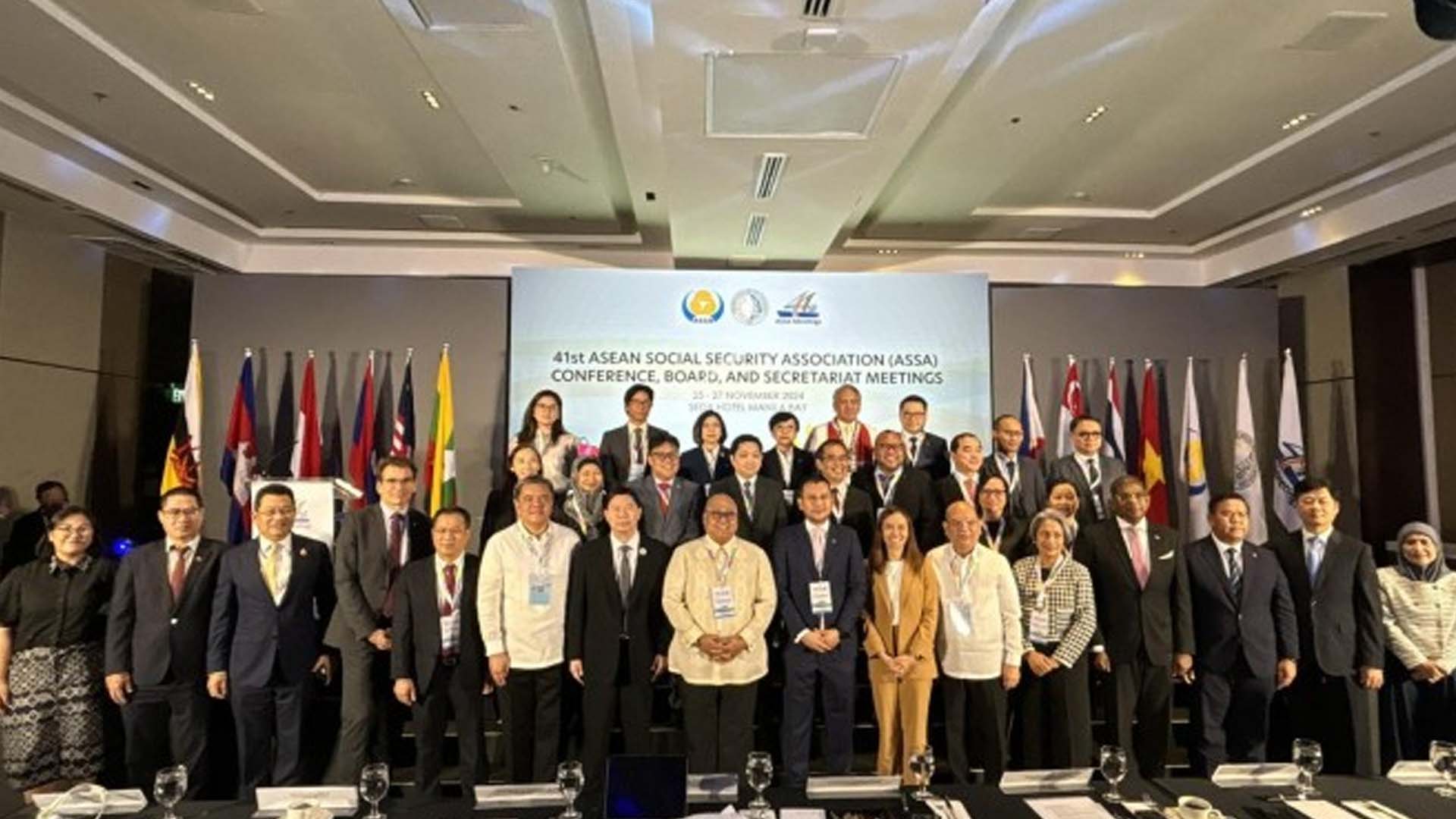Social security leaders from 10 Southeast Asian nations convened Monday for the 41st ASEAN Social Security Association (ASSA) Conference, highlighting their growing influence in global capital markets and commitment to enhanced social protection.
Philippine Treasurer Sharon Almanza opened the two-day summit at Seda Manila Bay Hotel on behalf of President Ferdinand R. Marcos Jr. and Department of Finance Secretary Ralph Recto.
In the speech delivered by Almanza, President Marcos reaffirmed the Philippine governments’ commitment to a collective mission to build social security systems that meet the demands of today and reinforce the aspirations of the next generations.
“Our framework for progress rests on three vital pillars: integration, innovation, and inclusion. These principles must guide our decisions as we work to enhance social protection across Southeast Asia,” said President Marcos.
Almanza was joined by ASSA Chairperson Ahmad Zulqarnain Onn of Malaysia and incoming chairperson and GSIS President and General Manager Jose Arnulfo Veloso of the Philippines, as well as the members of the Philippine Social Security Association.
The gathering comes as ASEAN demonstrates remarkable economic resilience, with the Philippines projected to maintain its position as the region’s fastest-growing economy, expecting GDP growth of 5.8 to 6.3 percent in 2024. This economic vitality provides a strong foundation for enhancing social security systems across the region.
“The USD 1.3 trillion in collective assets under our management represents more than just financial strength – it positions ASSA members as significant players in global capital markets and demonstrates our capacity to influence economic trends,” Veloso said.
“More importantly, it reflects the tremendous responsibility we hold as stewards of our citizens’ social security funds,” he added.
The conference features 10 expert-led sessions addressing critical developments in social security administration, including sustainability strategies for civil pension systems, universal healthcare coverage through data analytics, technology-driven service delivery improvements, platform workers’ social protection, and voluntary healthcare schemes for self-employed workers.
The Philippines assumes ASSA chairmanship on Nov. 26, with Brunei Darussalam taking the vice chairmanship.
The handover ceremony will recognize member institutions that have achieved significant reforms in social protection delivery, showcasing innovative solutions that put members and clients at the heart of service delivery.
“The Philippines’ vision of ‘Bagong Pilipinas’ resonates deeply with ASSA’s objectives of building more inclusive, innovative, and integrated social security systems,” Veloso added.
The initiative aligns with ASSA’s commitment to strengthening social protection frameworks across the region.
Onn said that among the ASEAN member states, only 46 percent of the population is covered by at least one social protection benefit, lower than the global average of 52 percent.
Equally concerning, he said, is that social protection expenditure in the region stands at just five percent of the GDP, lagging “far below global average”.
“These statistics highlight the urgent need to strengthen our social protection systems and expand coverage to ensure that no one is left behind,” Onn said.
Countries, he said, must address key challenges impacting the sustainability and effectiveness of social security systems in the ASEAN by tapping innovative approaches and strengthening regional cooperation.
“By deepening regional cooperation and integration, we can create a more robust and cohesive social security system across ASEAN,” he added.
ASSA, established as a regional cooperation platform for social security institutions, represents Brunei, Cambodia, Indonesia, Laos, Malaysia, Myanmar, Philippines, Singapore, Thailand, and Vietnam. Member institutions collectively serve hundreds of millions of ASEAN citizens through comprehensive social protection programs.
The Philippine Social Security Association hosts this year’s conference, with organizational support from the GSIS and the Social Security System, marking the Philippines’ first hosting of the event in eight years. (PNA)









